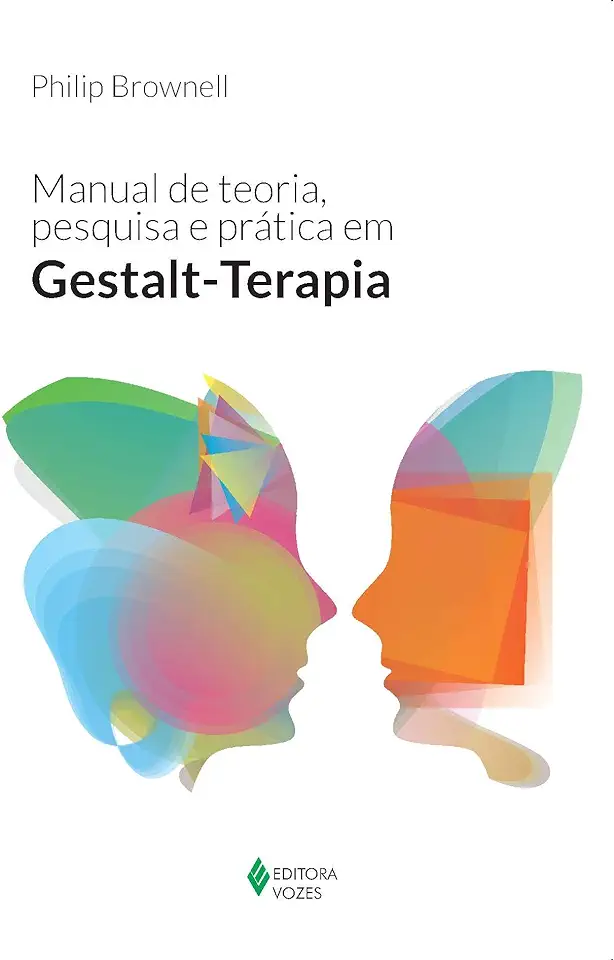
Handbook of Theory, Research, and Practice in Gestalt Therapy - Philip Brownell
Handbook of Theory, Research, and Practice in Gestalt Therapy
Philip Brownell
Introduction
Gestalt therapy is a holistic and relational approach to psychotherapy that focuses on the present moment and the client's experience. It is based on the belief that people are inherently whole and creative, and that they have the potential to grow and change. Gestalt therapy helps clients to become more aware of their thoughts, feelings, and bodily sensations, and to develop healthier ways of coping with life's challenges.
Theoretical Foundations
Gestalt therapy is based on a number of theoretical principles, including:
- Holism: Gestalt therapy views the person as a whole, rather than as a collection of separate parts. This means that the therapist considers the client's physical, emotional, mental, and spiritual well-being.
- Phenomenology: Gestalt therapy focuses on the client's subjective experience of the world. This means that the therapist listens to the client's story and tries to understand the world from the client's perspective.
- Contact: Gestalt therapy emphasizes the importance of contact between the client and the therapist. This contact can be verbal, nonverbal, or physical. It is through contact that the client can begin to heal and grow.
- Creativity: Gestalt therapy believes that creativity is essential for healthy living. Creativity allows people to express themselves, to solve problems, and to grow. Gestalt therapy helps clients to develop their creativity and to use it to their full potential.
Research Support
There is a growing body of research that supports the effectiveness of Gestalt therapy. Studies have shown that Gestalt therapy can be helpful for a variety of mental health problems, including anxiety, depression, trauma, and addiction. Gestalt therapy has also been shown to be effective in improving relationships, communication, and overall well-being.
Clinical Applications
Gestalt therapy can be used to help people with a variety of mental health problems. Some of the most common applications of Gestalt therapy include:
- Individual therapy: Gestalt therapy can be used to help individuals with a variety of mental health problems, such as anxiety, depression, trauma, and addiction.
- Couples therapy: Gestalt therapy can be used to help couples improve their communication, resolve conflicts, and build stronger relationships.
- Family therapy: Gestalt therapy can be used to help families resolve conflicts, improve communication, and build stronger relationships.
- Group therapy: Gestalt therapy can be used to help people with a variety of mental health problems, such as anxiety, depression, trauma, and addiction. Group therapy can also be used to help people develop their social skills and to learn how to relate to others.
Conclusion
Gestalt therapy is a holistic and relational approach to psychotherapy that has been shown to be effective for a variety of mental health problems. Gestalt therapy is based on the belief that people are inherently whole and creative, and that they have the potential to grow and change. Gestalt therapy helps clients to become more aware of their thoughts, feelings, and bodily sensations, and to develop healthier ways of coping with life's challenges.
Why You Should Buy This Book
If you are interested in learning more about Gestalt therapy, then this book is a must-read. This comprehensive handbook provides an in-depth exploration of the theory, research, and practice of Gestalt therapy. It is written by a leading expert in the field, and it is packed with valuable information that can help you to understand and use Gestalt therapy to help your clients.
This book is essential reading for anyone who is interested in Gestalt therapy. It is a valuable resource for therapists, counselors, psychologists, and other mental health professionals. It is also a great resource for anyone who is interested in learning more about themselves and how to live a more fulfilling life.